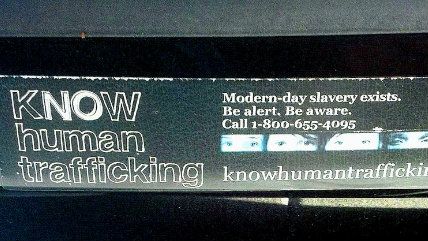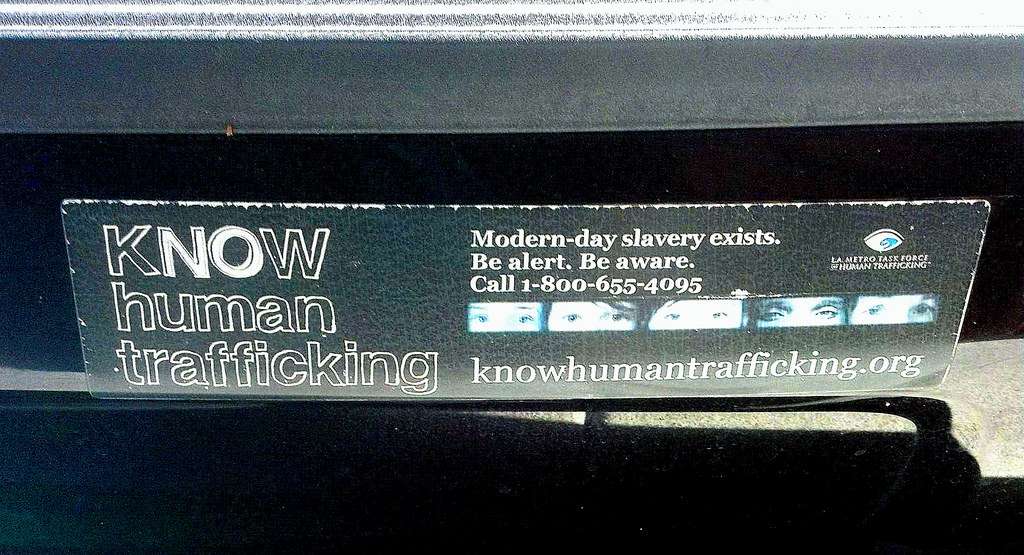'John School,' Homeland-Security Training for Strippers, and Other State Sex-Trafficking Laws Coming This Month
New laws (ostensibly) related to human trafficking take effect in Florida, Illinois, New York, and North Dakota this month.


For 2016, several states have resolved to get tougher on forced prostitution. To this end, they're embarking on costly "awareness" campaigns, enacting new regulations on adult businesses, and launching re-education programs for people who solicit sex. In other words, they're enacting the kind of measures that don't do squat for potential victims but do impose new burdens on business owners, new threats for commercial-sex seekers, and new financial obligations on taxpayers. Happy New Year! Here are four states with sex-trafficking measures that take effect this January:
North Dakota
North Dakota's new law forces people caught soliciting prostitution to enroll in "John School," where they'll be educated about how they are complicit in human trafficking. Anyone arrested for solicitation more than once in a 10-year period faces up to one year in jail and a $3,000 fine.
Curriculum for the new "sex offender education program"—as Florida's Public News Service describes it— was designed by the state's Force to End Human Sexual Exploitation (FUSE). Unsurprisingly, FUSE believes all prostitution must be eradicated. "There isn't a way to participate in this kind of behavior that doesn't promote really horrible things happening to other people," the group's leader, Christina Sambor, said.
Florida
?Florida now requires massage parlors, airports, and adult-oriented businesses such as strip clubs and sex-toy shops to prominently display a human-trafficking hotline number or face a civil penalty. The requirement comes following a coordinated push from the Polaris Project, a nongovernmental organization that gets federal funding to run said hotline. The more states Polaris can convince to make posting the phone number mandatory, the more money it can collect from the federal government for its operation. (Data on the effectiveness of this publicly-funded hotline are not publicly available.)
"Taping up a sign is not a burden," one Tampa strip club owner told ABC Tampa Bay—he put one up in the dressing room months ago. But that's not all the law requires. Employees of these businesses must also receive training from the Department of Homeland Security on how to spot potential sex traffickers or victims of sex trafficking.
New York
In New York state, labor trafficking, sex trafficking, prostitution, patronizing a person for prostitution, and having sex with a minor are all well-established crimes. The state's latest human-trafficking measure simply creates new "aggravated" categories of these crimes, which allows law enforcement to tack on extra charges and jail time under certain conditions, such as when the act takes place on or adjacent to a school or athletic grounds.
The new law also expands the definition of felony "advancing, compelling, or profiting from prostitution" to include any situation involving the prostitution of a 16- or 17-year-old, regardless of whether the teen is forced or coerced (previously, force or coercion must have been involved if the victim was above the age of 15). Additionally, it establishes that being a victim of sex trafficking is an affirmative defense to prostitution charges.
Illinois
Like Florida, Illinois now requires certain types of establishments to post a notice featuring the national human-trafficking hotline number. State laws requiring such postings are one of the key goals of the Polaris Project, which also receives ample federal funding to run the hotline.
In Illinois, airports, bars, strip clubs, adult stores, bus stops, train stations, urgent care centers, truck stops, hospital emergency rooms, job-recruitment centers, and farm labor contractors must start posting the hotline number in "a conspicuous place." Failure to properly post the notice will result in a fine of $500 or, after a first offense, a fine of $1,000.
Another new Illinois law ramps up the criminal penalties for patronizing or promoting juvenile prostitution if the minor is in the state foster-care system or otherwise a ward of the state.
